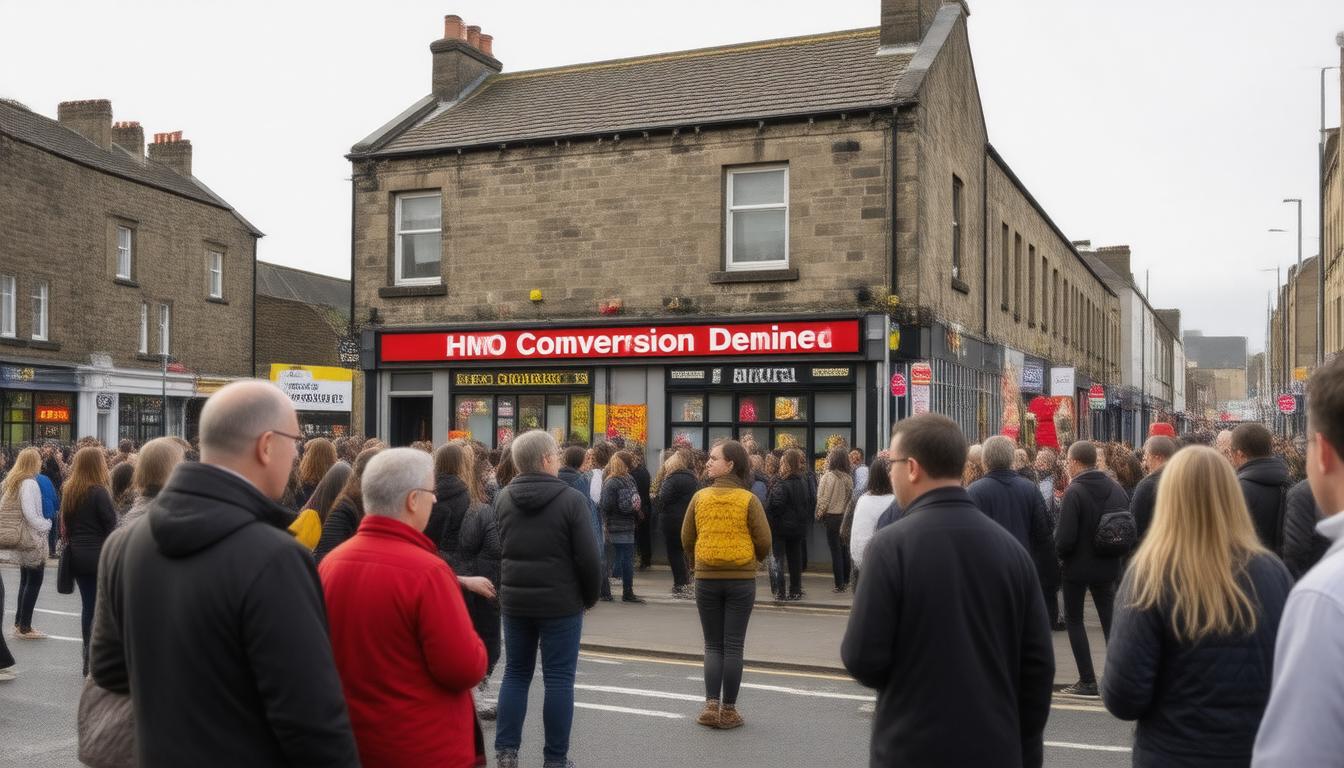In a significant development in North Belfast, the ongoing debates surrounding House in Multiple Occupation (HMO) conversions hit a new peak as a proposed conversion on Ponsonby Avenue was denied planning permission for the second time in six months. This decision reflects a growing trend, with a total of four HMO applications rejected in the area this year, predominantly due to opposition from Sinn Féin representatives and community members. While council officers have frequently recommended approving such conversions, the local council has collectively voted against these proposals, amplifying the concerns related to the proliferation of HMOs, particularly in residential neighborhoods plagued with anti-social behavior.
Belfast City Council’s stringent policies aim to mitigate the impact of HMOs by maintaining a cap on their concentration—ideally keeping HMOs below 20% in housing management areas and 10% in other residential zones. Yet, the reality on the ground tells a different story; there are streets, especially in heavily student-populated areas like the Holylands, where the percentage of HMOs exceeds 90%. The council’s rejection of the latest Ponsonby Avenue proposal follows a series of objections citing significant concerns, including parking issues, traffic safety, noise pollution, and waste management—issues that are paramount in maintaining the character and viability of family-oriented communities. Local residents fear that the increasing presence of HMOs will undermine their neighborhoods, leading to a gradual erosion of community ties and stability.
Key Takeaways
- The North Belfast community has successfully opposed multiple HMO conversions, reflecting ongoing concerns about anti-social behavior.
- Local councillors are prioritizing community stability over council officers’ recommendations for HMO developments.
- Belfast City Council’s policies aim to limit the concentration of HMOs to preserve neighborhood character, facing challenges from rising applications.
Background on HMO Conversions in North Belfast
In North Belfast, a recent decision has emerged regarding a house on Ponsonby Avenue, which has faced refusal for conversion into a House in Multiple Occupation (HMO) for the second time within six months. This particular case represents a growing trend in the area, where four properties have been denied HMO status throughout the year, largely due to opposition from the Sinn Féin party. Despite recommendations from council officers that advocated for the conversion, local councillors ultimately voted against these proposals. This divergence highlights increasing tensions surrounding HMOs, which are often associated with anti-social behavior and disturbances, especially in student-dominant districts such as the Holylands and Stranmillis.
The Belfast City Council is proactively addressing these issues through its policy aimed at capping HMO density: in housing management areas, the proportion of HMOs should not exceed 20%, while in other neighborhoods it is limited to 10%. However, many local streets, particularly those in the Holylands area, are alarmingly surpassing these thresholds, with some streets showing HMO numbers exceeding 90%. Residents have voiced substantial objections to the latest application, with concerns centering on parking shortages, traffic safety hazards, noise pollution, waste management issues, and the potential erosion of community character. Opponents to the conversions have stressed that the prevalence of HMOs may threaten family housing and contribute to a loss of community spirit due to the frequently changing tenant demographics. In light of previous refusals in the area, these recent decisions mark a continuation of the scrutiny and opposition towards HMO developments amid a surging number of applications citywide.
Community Concerns and Council Decisions
The high level of dissatisfaction among residents is further compounded by data indicating a significant shift in the demographics of local populations, particularly in areas like the Holylands, which have become increasingly transient. This trend poses a challenge for community cohesion, as long-term residents report the feel of their neighborhoods changing with more short-term tenants than families. The recent refusal of HMO applications reflects a council commitment to preserving neighborhood integrity while navigating the complex relationship between student housing needs and community stability (Belfast City Council, 2024). Additionally, critics argue that the current planning policy is not adequately responsive to the unique pressures faced by urban areas in Northern Ireland, calling for a more nuanced approach that considers both the housing supply and the resident experience (Sinn Féin, 2024). As HMO applications continue to flood the council, the ongoing debate around the impact of these conversions on local areas is expected to intensify, especially as community groups mobilize to advocate for stricter regulations that limit the density of HMOs and safeguard family housing.
Feel free to contact us via WhatsApp, social media, or email.
Always find the best rooms to rent & HMOs for sale in the UK at HMO Reporter.





